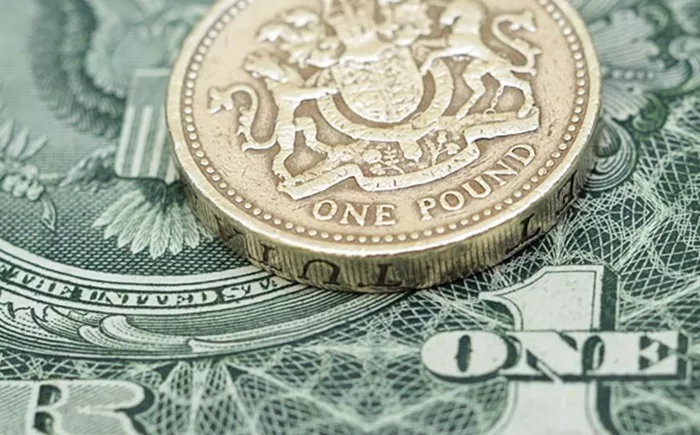In the global financial market, currencies are constantly exchanging value against one another due to fluctuations in economic conditions, market sentiment, and geopolitical events. One commonly analyzed currency conversion is the value of the British Pound Sterling (GBP) in U.S. Dollars (USD). This article provides an in-depth look into how the value of 1 British Pound is determined in U.S. Dollars, the factors influencing exchange rates, and practical considerations for currency conversion.
Introduction to Currency Conversion
Currency conversion is the process of determining the value of one currency in terms of another. For instance, converting 1 British Pound to U.S. Dollars involves using the current exchange rate to find out how many U.S. Dollars are equivalent to one British Pound. Exchange rates are not static; they fluctuate based on various factors, making real-time data crucial for accurate conversions.
The Importance of Exchange Rates
Global Trade: Exchange rates impact international trade by determining how much one country’s currency is worth relative to another’s. This influences the cost of importing and exporting goods and services.
Investment Decisions: Investors and businesses use exchange rates to make decisions about where to allocate resources. A stronger currency can indicate a robust economy, attracting foreign investment.
How to Convert 1 British Pound to U.S. Dollars
To convert British Pounds to U.S. Dollars, follow these steps:
1. Determine the Current Exchange Rate
Sources for Exchange Rates: Exchange rates are published by financial institutions, currency exchange services, and online platforms. Popular sources include financial news websites like Bloomberg, currency converter websites such as XE or OANDA, and banking services.
Example Exchange Rate: Assume the current exchange rate is 1 GBP = 1.27 USD. This means that one British Pound is equivalent to 1.27 U.S. Dollars.
2. Perform the Conversion
Formula for Conversion: To find out how much 1 British Pound is worth in U.S. Dollars, use the formula:
- Value in USD=Amount in GBP×Exchange Rate
Example Calculation: Using the example rate:
- Value in USD=1 GBP×1.27 USD/GBP=1.27 USD
Thus, 1 British Pound equals 1.27 U.S. Dollars at this rate.
See also: How Much Is 1 AUD in EUR?
Factors Influencing Exchange Rates
Exchange rates are dynamic and influenced by a range of factors. Understanding these can provide insights into why rates fluctuate and help in predicting future movements.
1. Economic Conditions
Inflation Rates: Inflation affects the purchasing power of a currency. If the UK experiences higher inflation relative to the U.S., the British Pound may weaken against the Dollar. Conversely, lower inflation in the UK could strengthen the Pound.
Interest Rates: Central banks set interest rates that influence currency values. Higher interest rates in the U.S. compared to the UK can attract foreign investors seeking higher returns, causing the USD to strengthen relative to the GBP.
2. Political Stability and Economic Policies
Government Policies: Economic policies, such as fiscal and monetary policies, can impact currency values. Policies that promote economic growth and stability can strengthen a currency.
Political Stability: Political uncertainty or instability in a country can lead to fluctuations in currency value. For instance, Brexit-related uncertainties have historically impacted the value of the British Pound.
3. Market Sentiment
Investor Behavior: Market sentiment, driven by news, reports, and global events, affects currency values. Positive news about the U.S. economy or negative news about the UK economy can influence exchange rates.
Speculation: Traders and investors may buy or sell currencies based on expected future movements, impacting exchange rates through market speculation.
4. Global Events and Economic Indicators
Trade Relations: Trade balances between countries affect currency values. A trade deficit (more imports than exports) can weaken a currency, while a trade surplus (more exports than imports) can strengthen it.
Global Crises: Events such as financial crises, geopolitical conflicts, or natural disasters can impact market confidence and influence currency values.
See also: How Much Is 1 V-Bucks in USD?
Practical Considerations for Currency Conversion
When converting currencies, several practical considerations should be taken into account to ensure accurate and cost-effective transactions:
1. Currency Conversion Fees
Transaction Costs: Currency conversion services, including banks and online platforms, often charge fees or commissions. These costs can affect the amount of USD received for GBP.
Comparison Shopping: To get the best conversion rate, compare fees and rates across different providers. Online currency converters and financial institutions may offer varying rates and fees.
2. Real-Time Exchange Rates
Fluctuating Rates: Exchange rates can change rapidly due to market conditions. For accurate conversions, use real-time exchange rates from reliable sources.
Currency Converter Tools: Online currency converter tools provide up-to-date exchange rates and allow for quick calculations. These tools are useful for getting immediate estimates.
3. Impact of Market Timing
Market Trends: Currency values can be influenced by short-term market trends. Timing your conversion based on market trends can affect the amount received.
Economic Reports: Monitor economic reports and news that may impact exchange rates. Reports on inflation, interest rates, and economic growth can provide insights into future currency movements.
4. Security and Reliability
Choosing Providers: Select reputable currency exchange providers to ensure reliable and secure transactions. Research and read reviews of exchange services to avoid potential issues.
Fraud Prevention: Be cautious of online scams and fraud when using currency conversion services. Ensure that the provider is legitimate and trustworthy.
Conclusion
Determining the value of 1 British Pound in U.S. Dollars involves using the current exchange rate, which fluctuates based on a variety of economic, political, and market factors. As of the example provided, with an exchange rate of 1 GBP = 1.27 USD, 1 British Pound is equivalent to 1.27 U.S. Dollars. Understanding the factors that influence exchange rates, such as economic conditions, political stability, market sentiment, and global events, is crucial for comprehending currency value fluctuations. Additionally, practical considerations such as currency conversion fees, real-time rates, market timing, and provider reliability play a significant role in ensuring accurate and cost-effective currency exchanges.
Related Topics:

